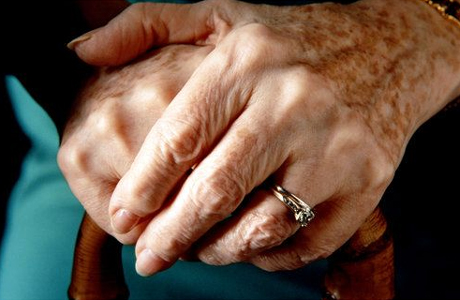Retirement
Retirement checklist: what benefits are you entitled to?

Retirees are being urged to find out what benefits they are entitled to after a new report found 1.6 million older people are missing out on extra pension credit.
Figures from the Department for Work and Pensions (DWP) indicate that up to £2.8bn in pension credit is not taken up, and it is thought that about one in three of those eligible are still not claiming the benefit.
Retirement homes property developer, McCarthy & Stone, said that a low awareness of the range of benefits older people are entitled to, as well as a fear of talking to strangers about money problems, is why many pensioners are struggling to cope with their finances and failing to claim the extra cash.
Colin Cuthbert, benefits adviser at McCarthy & Stone, said: “Most of the people we help have never claimed anything extra in their life, but we explain that they’re entitled to investigate their options. These can make a real difference to many older people who have been struggling to meet the rising cost of living and didn’t know they could get some extra help. We’ve spoken to over 800 people about benefit entitlement in the past 12 months.
Anyone aged 60 or over in England is eligible for free NHS prescriptions and sight tests.
But many people who receive Guaranteed Pension Credit do not realise that this automatically qualifies them for help towards NHS health costs too – for example, free NHS dental treatment and a voucher towards the cost of glasses or contact lenses.
They can also receive help with essential travel costs to receive NHS treatment if referred by a doctor or dentist, or need to see a consultant.
Pensioners may also be entitled to:
1. Guaranteed Pension Credit
There are two elements of pension credit – Guaranteed Credit and Savings credit, so you may be entitled to receive one or both of them. Guaranteed Pension Credit may be paid when you reach the qualifying age.
It tops up your weekly income to a guaranteed minimum if it’s below £145.40, or £222.05 for a couple. These figures can also increase if you are in receipt of disability/careers benefits and/or if you are liable for ground rent and service charges.
2. Savings Credit
Savings Credit is an extra payment for those who have saved some money towards their retirement for example a pension and you may be able to get it if you are aged 65 or over.
You may also be entitled to Savings Credit as well as Guaranteed Pension Credit. This could be worth up to £18.06 per week for single people, or £22.89 for couples.
3. Attendance Allowance
Attendance Allowance is also one of most frequent benefits pensioners fail to claim.
This is a non-taxable benefit for people living at home aged 65 and over who need someone to help look after them because they are physically or mentally disabled and is a non-means tested benefit.
The name given to this entitlement is confusing as it implies that you need to have someone actually looking after you at home to benefit. This is certainly not the case.
A typical successful applicant for this entitlement will be over 65 years of age who through illness or disability occurring for at least the last 6 months requires help with personal care, support or supervision. What matters is that you need the help, not whether you are actually receiving it.
There is not a list of illnesses or disabilities which determine who will and who will not receive the Attendance Allowance but special rules do apply for certain conditions including blind and terminally ill applicants.
Successful eligible applicants can receive £53 paid weekly, often if needs are limited to day time and £79.15 weekly if your needs are for day and night. Applicants have to submit an Attendance Allowance Claims Pack.
4. Council Tax Benefit
This may be met in full if you qualify for the Guaranteed Pension Credit. There are possible discounts if you have a low income and you can receive a 25% discount if you live on your own. You may be entitled to a reduction in Council Tax if you are disabled or have a disabled person living with you.
5. Personal Independence Payment/Severe Disability Premium
Personal Independent Payment is a non-taxable benefit for people who have become disabled and make a claim before 65. It is non-means tested.
Severe Disability Premium, if you receive a qualifying benefit such as Attendance Allowance or Personal Independence Payment you may also qualify for a premium on top of the basic personal allowance known as Severe Disability Premium.